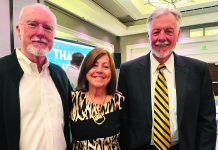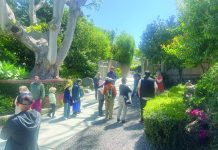Walking Away from Our Heritage?

How did a Walmart end up across the road from the Victorian farmhouse where I grew up? Because my family and I walked away from our heritage.
My great-grandparents came to Wisconsin from Germany around 1870. First, they bought 20 acres of swamp land. Then somehow, they managed to acquire an excellent farm not far from town with barns and a house already built. When there was the opportunity, they added neighboring farms. More barns were built, purebred Holsteins grazed in the pastures. There were fields of grain, corn, gardens, woods, sheep, pigs, chickens. Work horses, retired by the time I was in grade school, were kept and fed in a remote barn, running free. The farm became my grandfather’s responsibility around 1910, then in the 1940s my father, an only child, was expected to carry on. He did, trying to forge a more up-to-date dairy farm, sometimes in conflict with my grandfather’s interest in a diversified operation.
So, in 1961 my dad sold his part of the farm and the cows and left Wisconsin to try his hand at dairying the modern way in Arizona. I think now this was his mid-life crisis, his way to assert himself, thinking that he would never have his own way with my grandfather in charge. Two years later my grandfather was dead. The situation my father had fled turned out to be transitory, but his response to it had permanent consequences.
My grandmother struggled to keep the farm going with the help of a long-time hired man. Eventually it became too much, and she was tempted to sell. By that time, I was in my 20s. She called and asked me, “Would you ever want to come back and run the farm?” How could I answer that question—as immature as I was, and as enormous as the prospect seemed to be in comparison with studying, passing tests and trying to graduate from college?
She did sell the farm in 1966. The buyer sold off the fields closest to town for strip mall-type commercial development. Houses are now in the subdivided woods, and a pizza place is where my grandparents’ house used to be. Their house itself was intentionally set on fire as an exercise for the fire department. And yes, the most recent affront to the dreams of the homestead farmers—there’s a Walmart on the acres that used to be the sugar beet field across the road. Meantime, the former center of our little town is bereft of thriving businesses.
Those who sold off the land for unfortunate development have moved on, but the results of their decisions dictate the future, the pattern of all the lives that come after.
Owners are transitory. What they leave behind is more permanent. It can direct the future of the community—for good, or not.
Now with all the ownership changes in Laguna Beach, with all the grand expectations, will we walk away from our heritage and let our future be directed by these new owners’ images of what our town should become?
So far by our conscientious respect for our city, its sea and landscapes, we citizens have protected Laguna Beach from the typical development mistakes that other communities have made. We too are transitory, but our good decisions, in keeping with those who have come before, will mean Laguna will live on as the remarkable, charming and inspiring place we love—for the ages.
Ann Christoph is a landscape architect and former City Council member.




